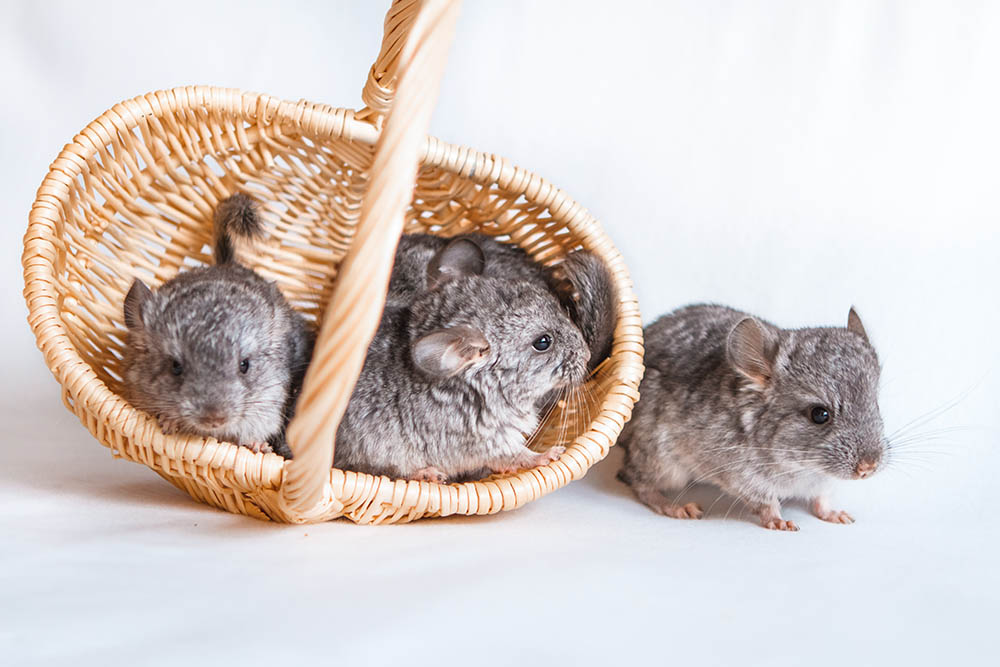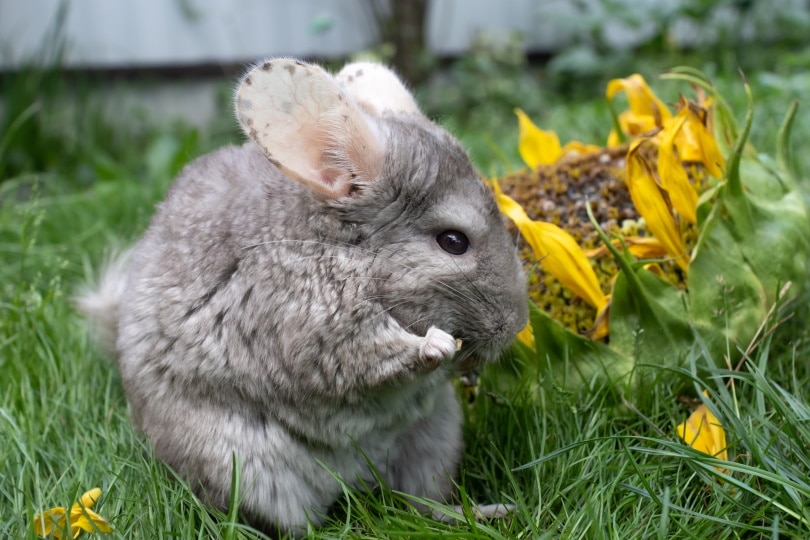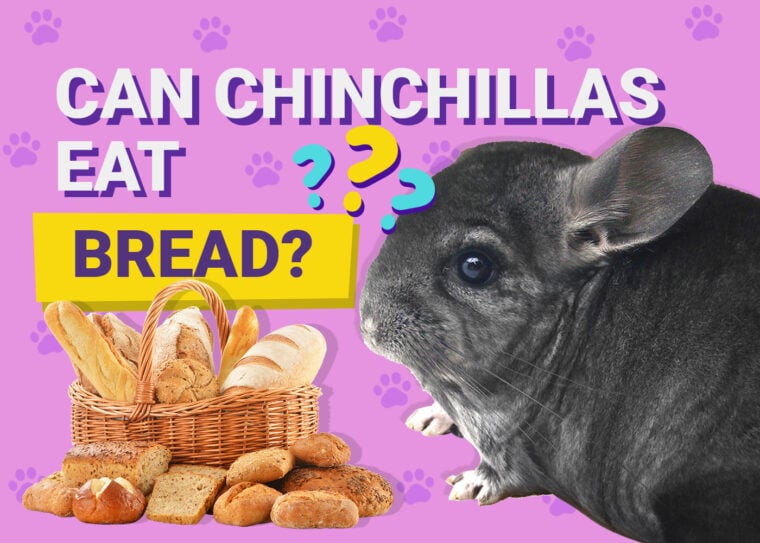
Chinchillas have sensitive digestive systems. Their diet and any changes to it can lead to various health problems. Chinchillas do well on a basic diet of pellets and good-quality hay. A treat now and then would be appreciated, though, and besides leafy greens, you may wonder if the crust from your sandwich is a good idea to give them.
Bread isn’t poisonous to chinchillas and they can eat it. However, it can cause health problems in large doses due to its nutritional value.
Chinchillas thrive on high-fiber diets. While it’s a staple for humans, bread doesn’t contain enough fiber to be a healthy addition to a chinchilla’s meals. It also contains too much sugar and not enough protein. There are many healthier snacks available to feed your chinchilla instead.

Can Chinchillas Eat Toast?
While it’s not a good idea to feed bread to your chinchilla, toast is okay, provided that you only offer it as a treat. Moderation is key here.
Dry and crunchy, an occasional morsel of toast can both keep your chinchilla’s teeth in top form and settle their stomachs if they have diarrhea. It doesn’t have enough fiber content to make up the majority of your chinchilla’s diet, though. Make sure you only feed them small pieces infrequently and preferably only when they have diarrhea.
Croutons are not recommended as snacks at all. While they’re also dry, croutons tend to be fried, and their fat content can be too high for your chinchilla to handle. While your friend can handle a few herbs with their greens, croutons contain too much salt to be healthy.
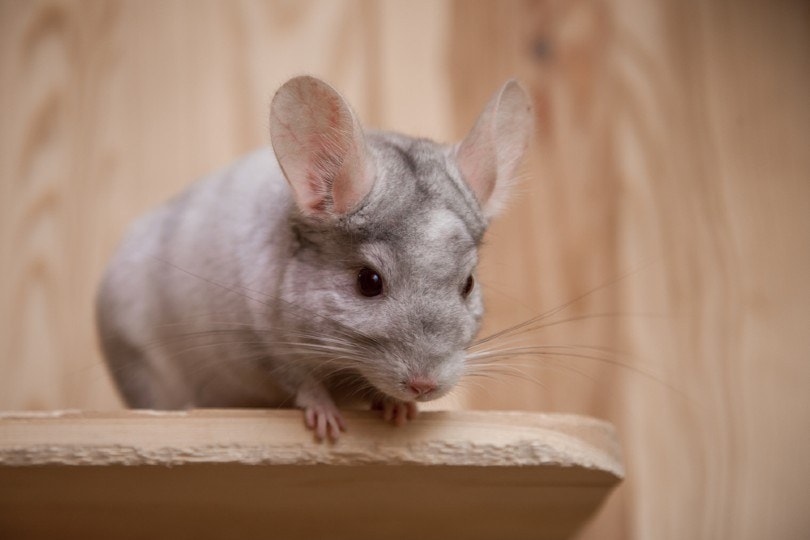
What Foods Are Poisonous to Chinchillas?
Although bread isn’t toxic to chinchillas, there are plenty of other foods that can cause damage if given to your pet. Foods to avoid completely include:
When in doubt about a particular food, check with your veterinarian, or give your chinchilla an extra handful of hay instead. Where the health of your best friend is concerned, it’s always better to be safe than sorry.
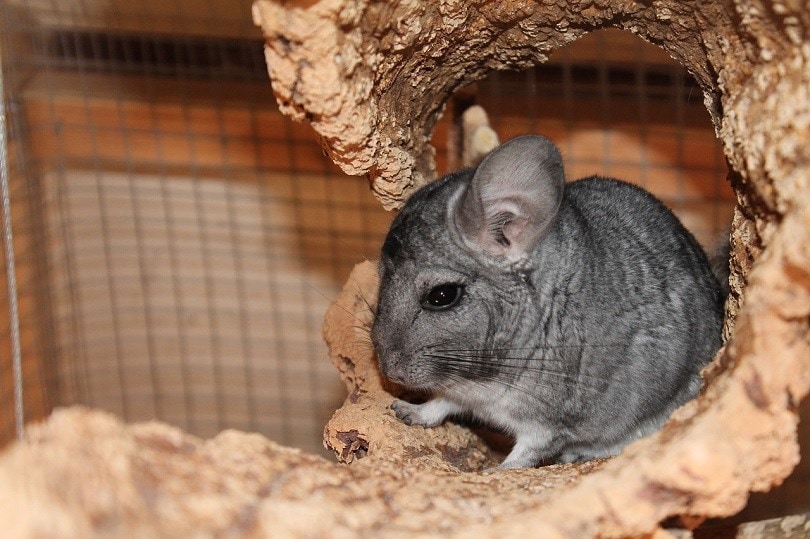
What Foods Can Chinchillas Eat?
If you’re new to owning a chinchilla, it’s always a good idea to stick with a simple diet. While it may seem boring to you, your chinchilla and their sensitive digestion will appreciate how easy it is to eat their meals.
Hay should be the biggest part of your chinchilla’s diet, at least 80–90%. Not only is it high in fiber, but chewing on it also enables chinchillas to keep their teeth in check and avoid dental issues. High-quality hay is best, and timothy hay, alfalfa, orchard, and prairie grass are all good choices to keep in your chinchilla’s cage so they always have something close by.
Pellets that you can buy from any pet store make a good base for your chinchilla’s diet but shouldn’t be relied on alone. While they’re formulated to be nutritional for your pet, they don’t contain much fiber and should be balanced with a healthy supply of hay. Adult chinchillas should only have 1–2 tablespoons of pellets a day.
Treats in moderation can satisfy your chinchilla’s desire to eat new things now and then. Rosehips and bee pollen both contain nutrients that your chinchilla needs to remain healthy, and they make tasty snacks.
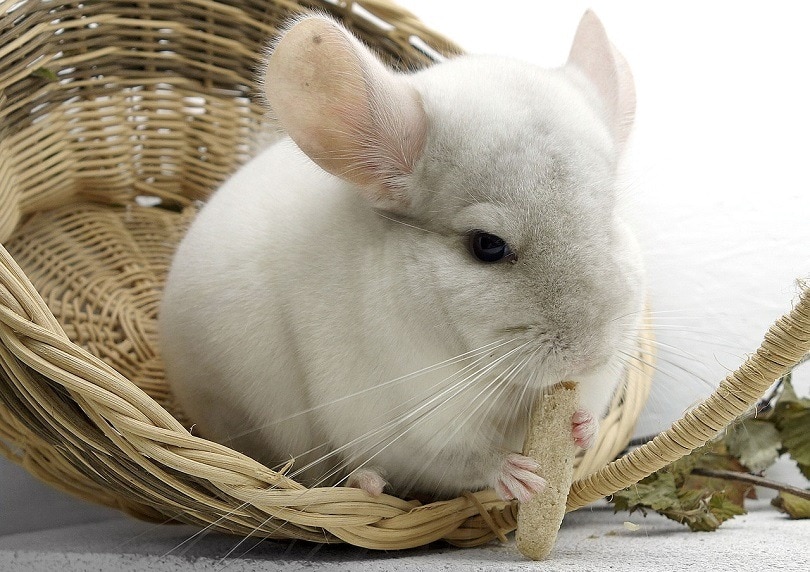
Dried apples, raisins, and leafy greens are also good options. If you’re crunched for time, you can purchase readymade bags of treats specially designed for chinchillas. Either way, make sure the treats that you give your pet don’t contain sugar.
Always keep plenty of clean water available for your chinchilla. Along with providing a fiber-filled diet, keeping them hydrated is one of the best ways to ensure that their digestive system works properly.
If you do add something new to your chinchilla’s diet, remember to introduce it slowly. With their sensitive stomachs, sudden dietary changes can make your furry friend ill. Keep an extra close eye on your chinchilla whenever you give them something different to eat, so you can catch any warning signs of an adverse reaction.
By making sure they’re drinking and pooping consistently, you can be more certain that a particular food hasn’t affected them badly.

Conclusion
Chinchillas can eat bread, but it isn’t one of the best snacks to offer your pet. It doesn’t contain enough protein or fiber, and there’s often too much sugar included for it to be a healthy addition to your favorite rodent’s diet.
Toast, in moderation, can help settle an upset stomach and soothe diarrhea, but otherwise, there’s no reason to feed bread to your chinchilla at all. There are plenty of healthier, tastier, and more nutritional snacks available.
When in doubt about what to feed your chinchilla, stick with the basic hay, pellets, and the occasional rosehip, bee pollen, or shop-bought chinchilla treats.
Featured Image Credit: Gamzova Olga, Shutterstock

